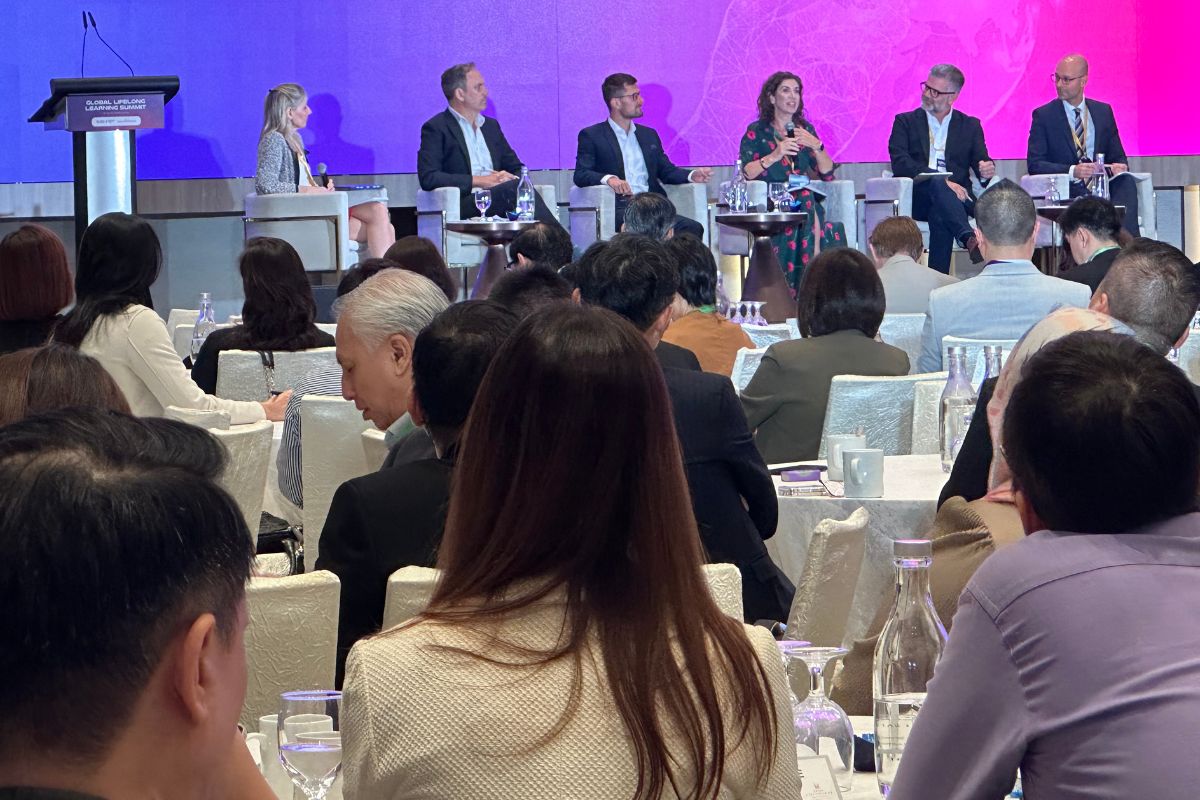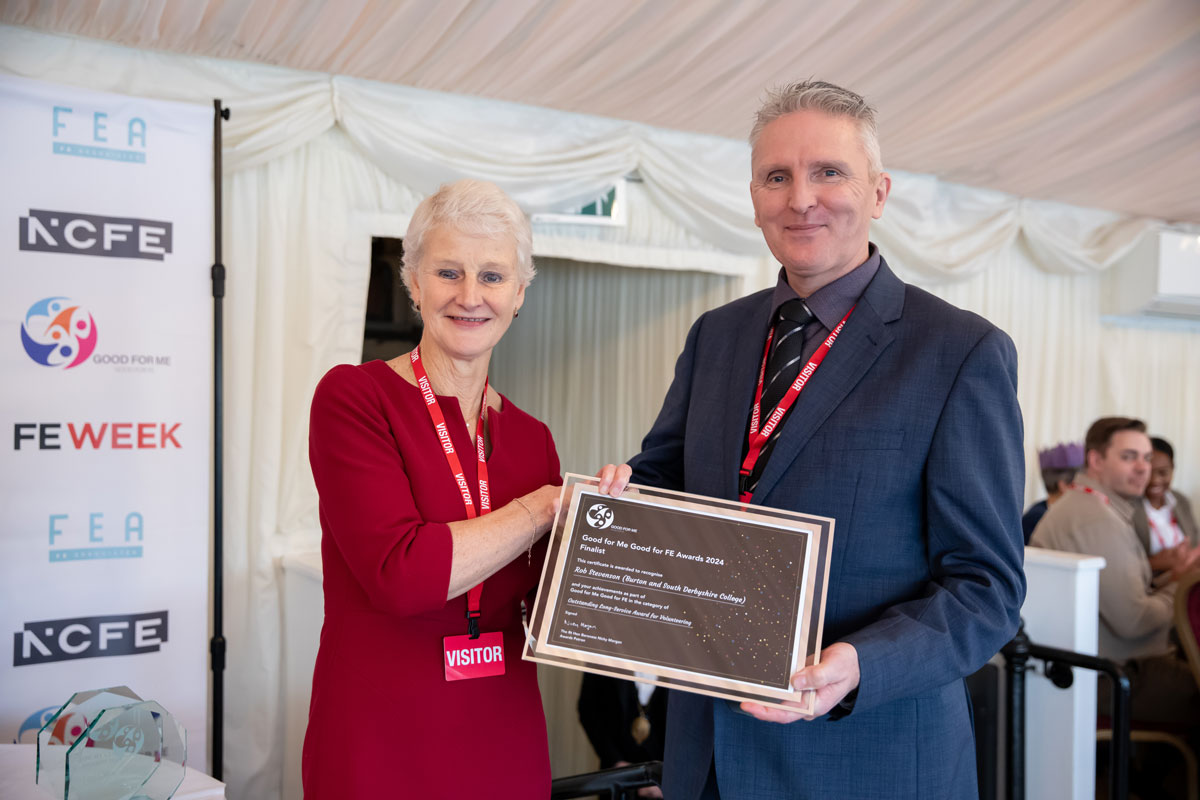Global Lifelong Learning Summit 2024 Explores the Intersection of AI, Lifelong Learning, and Human Potential

Singapore, 1 October 2024 – Over 400 global industry leaders, policymakers and tech leaders from around the world convened at the second edition of the Global Lifelong Learning Summit (GLLS) 2024 in Singapore, to delve into the transformative impact of Artificial Intelligence (AI) on lifelong learning. Held over two days on 1 and 2 October 2024, GLLS 2024, with the theme “Human Flourishing in an Age of AI: Lifelong Learning Perspectives”, is jointly organised by the Institute for Adult Learning (IAL) and SkillsFuture Singapore (SSG). Guest-of-Honour, Singapore’s Minister for Education, Mr Chan Chun Sing, attended the event on the first day, delivered a speech and toured the technology showcases.
GLLS 2024 participants will discuss how AI will reshape economies and workforces, and how lifelong learning can enable both individuals and organisations to thrive amidst rapid AI advancements. Key questions to be tackled include AI’s impact on industries and businesses, how AI technologies can unlock new opportunities and augment human strengths, and how AI can make adult education more accessible, relevant and personalised.
The Summit will feature keynote speeches and panel discussions from global experts across various sectors, including representatives of international organisations such as the Organisation for Economic Co-operation and Development (OECD), UNESCO Institute for Lifelong Learning (UIL), and the International Labour Organisation (ILO). For more information on the speakers at the Summit, please refer to Annex A.
Associate Professor Yeo Li Pheow, Executive Director of IAL, said:
“AI is no longer a future prospect, but is a present reality rapidly shaping our world. Research from the past five years indicates that the increasing integration of AI into the economy has raised expectations for enhanced productivity. Additionally, our research alongside international collaborators underscores the necessity for a collective global effort to ensure that the AI-driven future allows humans to flourish. This Summit is about responding to these changes. As Singapore’s National Centre of Excellence for Adult Learning, we are here to foster dialogue and collaboration, ensuring that as AI capabilities grow, so too does our ability to leverage them for individual and societal augmentation and benefit. By fostering collaboration between diverse stakeholders, we can better shape an AI-augmented future that amplifies human potential.”
Mr Tan Kok Yam, Chairman of IAL and Chief Executive of SSG, said:
“We are all well aware of the increasingly transformative impact of AI on industry, businesses and jobs. It is crucial that we equip our workforce with the necessary skills to stay ahead of developments. It is equally important to make full use of AI to enhance our lifelong learning system. I hope that this Summit will enable us to learn from each other and form new partnerships to advance lifelong learning amid rapid technological change.”
Ms Glenda Quintini, Head of the Skills and Future Readiness Division at OECD shared,
“AI can bring significant benefits to the workplace in the form of better performance, higher enjoyment of work, and better physical and mental health. But the benefits are likely to be unequal and risks of job automation and skill obsolescence remain. Training is crucial to realise these opportunities while helping to mitigate the risks, but few countries so far have proposed concrete action plans and only a minority have developed an integrated approach for AI skills development.”
Mr Pedro Moreno da Fonseca, Technical Specialist at International Labour Organisation (ILO), Switzerland, said,
“Harnessing the potential of AI will require that policy-making develops solutions that address different needs and impacts across sectors and occupations, as well as minimize risks associated with job displacement and work quality. Governments and social partners must work together to provide lifelong learning opportunities that ensure that workers develop the right skillsets to make the best use of AI, and that promote equal access to these new possibilities.”
Mr Daniel Baril, Chair of the UNESCO Institute for Lifelong Learning (UIL) Governing Board, Canada & Director General of Canadian Institute for Cooperation in Adult Education (ICÉA) said,
“As artificial intelligence reshapes our world, lifelong learning becomes the cornerstone of human progress. This Summit provides a crucial forum to explore how we can harness AI to augment human capabilities and create a more equitable future. By prioritizing education, skills development, and inclusive learning, we can empower individuals and communities to thrive in the digital age. Lifelong learning is essential to ensure that everyone benefits from the transformative potential of AI.”
AI Literacy and Work Creation
Stijn Broecke Senior Economist at OECD opened day 1 with really interesting data sets from OECD on AI and productivity, AI and job creation and the need for AI literacy.












Responses